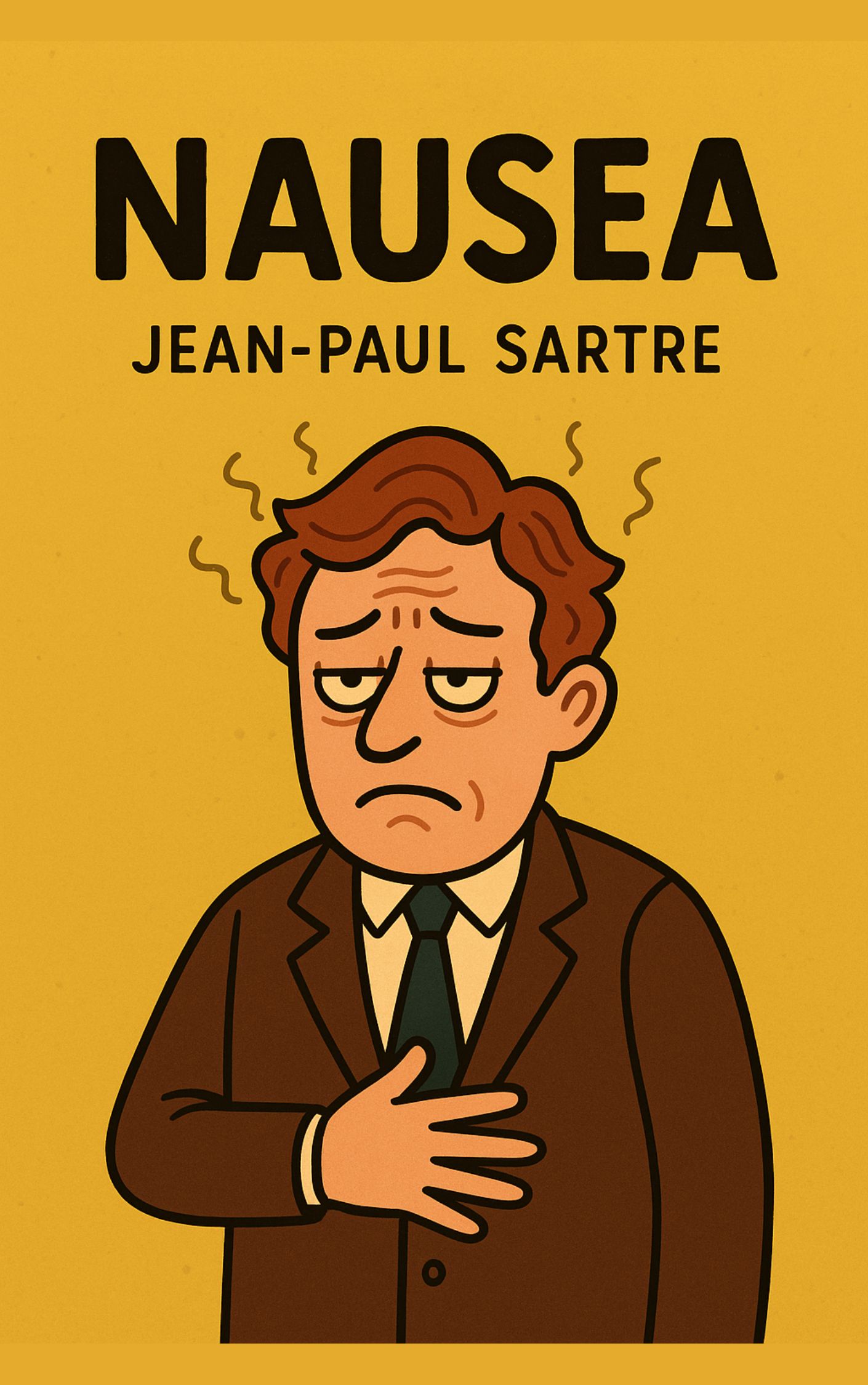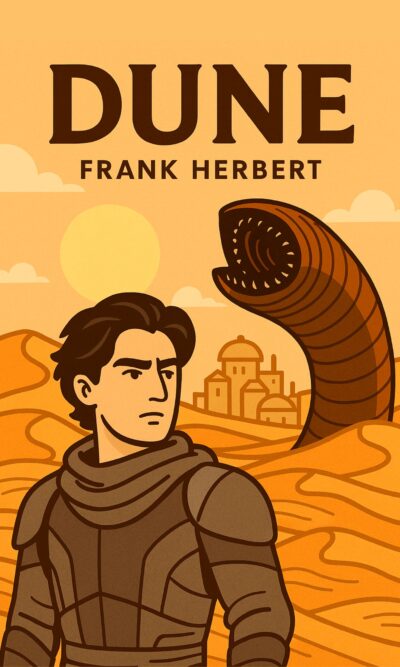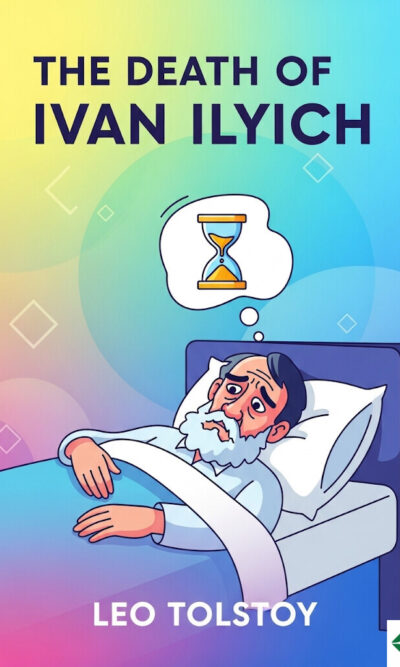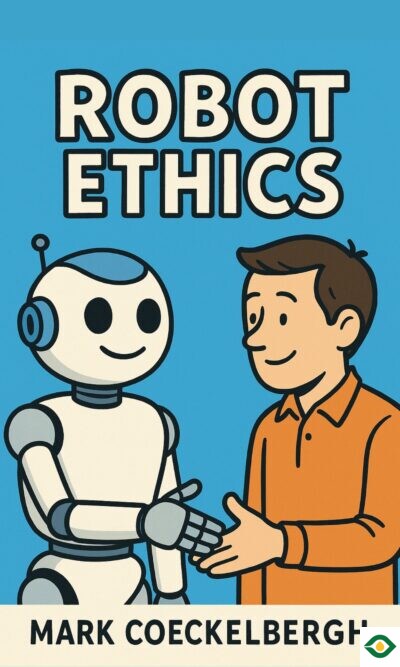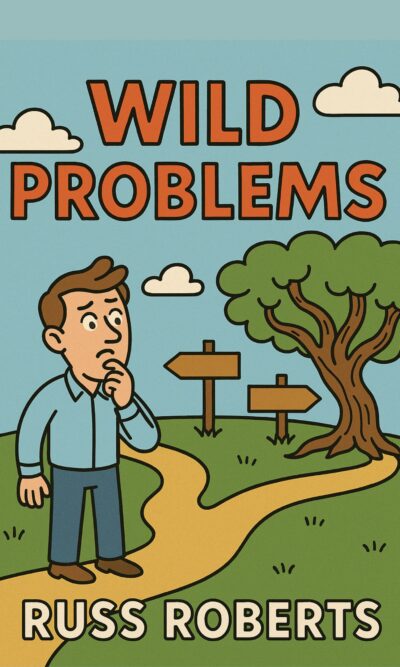Description
Antoine Roquentin is a thirty-year-old historian living in the small, fictional town of Bouville. He has come there to work on a biography of a long-dead aristocrat, the Marquis de Rollebon. His life is quiet, repetitive, and lonely. He spends his days in the library, walking the streets, sitting in cafés, or having casual encounters with women.
At first, life moves in a dull, steady rhythm. But gradually, Antoine begins to feel strange. Ordinary objects start to seem unsettling, even repulsive. Picking up a pebble or looking at a tree can fill him with a deep sickness. This sickness is not from his body – it is a feeling that life itself is meaningless. He calls it “nausea.”
The more he thinks, the more Antoine struggles with his place in the world. He loses interest in his research. He realizes he has not really had “adventures” – only random events he later tries to shape into stories. He remembers his ex-lover Anny, who once tried to create special “perfect moments” in life, but he is not sure if he ever truly loved her. Then, a letter arrives from Anny, asking him to meet her in Paris.
Meanwhile, Antoine befriends a man at the library known as the Self-Taught Man. This man has set himself the task of reading every book in the library in alphabetical order. Antoine admires his determination, but also finds it strange. The Self-Taught Man says that when he is done, he will take a trip around the world. This conversation makes Antoine reflect even more on how random and arbitrary life can be.
As days pass, Antoine becomes obsessed with the thought of death. He meets different people – a shabby man named Monsieur Achille, a respected doctor named Rogé – and realizes that no matter how they live, all will die in the end. Visiting a museum, he sees portraits of powerful men from the past and feels they are silently judging him for wasting his life. His work on the biography stops completely. One day, he even pricks his own hand with a knife, just to feel something real.
Antoine’s sense of alienation deepens. In a tense lunch with the Self-Taught Man, they argue about life’s meaning. The Self-Taught Man believes in the value of people and kindness, while Antoine insists that existence itself is empty. Antoine’s nausea overwhelms him, and he leaves abruptly. Later, he realizes that the nausea is not something attacking him – it is part of him. Everything, he concludes, exists without a reason. Things come into being, keep existing without knowing why, and stop existing for no reason at all.
With this realization, Antoine decides to leave Bouville and head to Paris. He feels a faint sense of adventure for the first time in a long while.
In Paris, Antoine finally meets Anny. She has aged, and although he realizes he once loved her, she has moved on. She now lives with an older man who takes her to luxurious hotels. She no longer seeks perfect romantic moments and has given up her acting career. When Antoine tells her his bleak view of life, she calls him selfish, saying he wants the universe to care about him but does not care about others. She refuses his attempt at affection and shuts the door on him.
Returning to Bouville to collect his belongings, Antoine finds that all the reasons he once had to stay – his book, Anny, his past travels – are gone. At the library, he sees the Self-Taught Man banned for inappropriate behavior toward a young boy, ending his grand reading project. This shows Antoine that not all quests for meaning are noble.
Before leaving town, Antoine visits a café, says goodbye to familiar faces, and asks for his favorite jazz record to be played. As he listens, he realizes the musicians have created something lasting – a piece of art that gives meaning beyond their own lives. Inspired, Antoine decides that he, too, can create something. He chooses to write a novel as a way to make sense of his life.
This choice marks a turning point. Antoine accepts that life has no built-in meaning, but also that this gives him the freedom to invent his own. He leaves Bouville with resolve, a hint of purpose, and a small spark of hope that he can write his own story – both on paper and in life.
The story is a journey through despair, isolation, and the search for meaning. It shows how realizing life’s emptiness can feel crushing, but also how it can open a door to freedom. By the end, Antoine moves from passive suffering to active creation, stepping into the responsibility of shaping his own existence.

